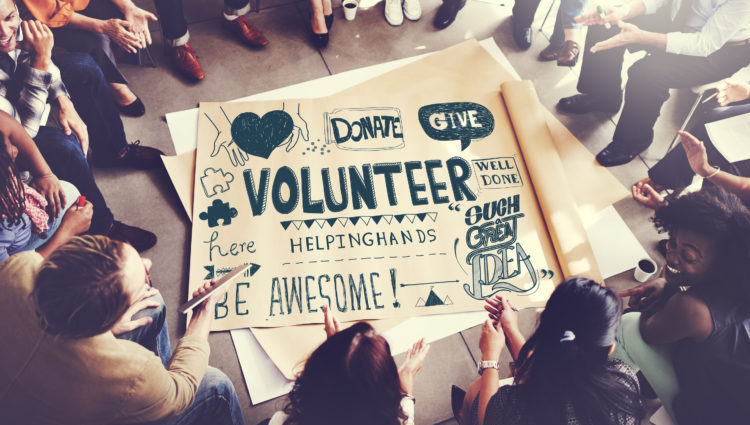
When I was 21, I was pretty sure how the rest my life would go. I made good grades, I was majoring in a subject I loved, and I had my sights set on a doctorate degree so I could be just like one of my favorite professors.
When I walked into her office one fall morning to discuss the letter of recommendation she had promised to write, our conversation went off the rails.
“You seem stressed,” she said. “I think you should take a year off.”
And that was that.
Actually, it was much more dramatic. I left her office stunned, and with no letter of recommendation. I called just about everyone I knew and cried my eyes out. I lay on my lofted dorm bed staring at the ceiling two feet above me.
RELATED: Strapped for Cash? Don’t Cut Giving Out of Your Budget
After a few weeks, I decided to do a year of service on the southwest side of Chicago as a volunteer high school English teacher, just to bridge my time until grad school. It sounded good: No homework, more time to work on my applications, a new city to explore, new people, and sure, it looked great on my resume.
However, when that year ended, I no longer wanted to get a doctorate. In fact, I had no idea what I wanted to do.
After what became three years of teaching high school, I took part-time jobs, traveled a little, became a doula, and eventually applied to graduate school: this time for a master’s degree in public health, focusing on maternal and child health.
Today, I couldn’t be happier that the plan changed. But despite such an intense and moving experience helping others, I still struggle with what it means to live a life of service.
What shook me out of my prior plans wasn’t necessarily what I was doing but more so how I was living. I was living in a low-income neighborhood. I was surrounded by Spanish-speakers. I was involved in community nonprofits. I spent endless hours after school running activities for the students. And at the end of the day, I walked two blocks down to my shared home, ate dinner, and went to bed.
RELATED: How to Give Back When You’re Broke
In a way, it was easy to say I was living a life of service because I was constantly immersed in a totally different world. I couldn’t do something as simple as check the mailbox without being challenged on a justice level. Just outside my door, I saw police with a heavily-tattooed man, and wondered if they engaged with him without bias. I saw an undocumented man pushing a paleta cart and wondered how our government’s changing immigration laws might affect his life. Service and questions of justice were all day, every day.
Today, I still work in the nonprofit world, yet live in an upscale neighborhood, drive a car to work, and spend ample time with my peer group indulging in the luxuries Boston has to offer. I’m not surrounded by need day in and day out in my neighborhood. If I want opportunities to serve, I have to seek them out.
One thing I learned very early on in Chicago is doing service is not the one-time food drive we did growing up. In choosing to become a high school teacher and live in the surrounding neighborhood, I didn’t have the choice to walk away at the end of the day. It was about real relationships with people I saw every day. If they challenged me, I still saw them the next day. They needed to trust me, and I needed to be accepted by them. This was no litter cleanup on a Saturday afternoon. This was a much more complex experience.
Some of my most profound experiences of service happened during this time because I stayed committed to ongoing relationships. In that sense, it wasn’t about the number of people we served or the hours we recorded. It was about commitment, even when we could walk away. It involved the give and take of any serious relationship, and I was most touched by what I was continually given by my students and neighbors.
RELATED: 6 Good Reasons to Get to Know Your Neighbors
The second thing I learned was to explore a personal sense of purpose as part of choosing service. Shortly after college, I thought I had to do everything I could to serve the world. The need to teach made sense to me; however, I eventually burned out trying to be the best teacher I could possibly be. After seeing some of my students become pregnant and not having the proper support to raise a child, much less give birth, I began to feel called to be a doula and a childbirth educator. Slowly, I began to operate not out of a sense of what I should do but rather what I can do well with my talents and desires.
Figuring out how we’re called to serve and our unique contribution to the world is not easy. In fact, it’s sometimes downright countercultural to think about who I am and what I have to give in a world that constantly tells us to look out for only our own needs. It took years for me to get out of my comfort zone and ask these questions. It took even longer to figure out what the answers meant, and I still am on that journey today.
Not all of us live in such a way where we are confronted with opportunities to give back all day, every day. But, that doesn’t mean we can’t integrate meaningful service into our lives. By entering into deeper relationships with others and continuing to ask ourselves intentional questions about our purpose, we can make service a real part of our lifestyles.
Originally published on March 30, 2017.